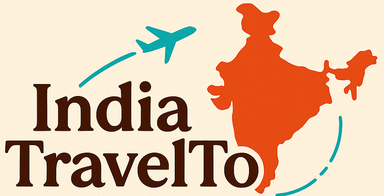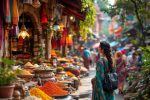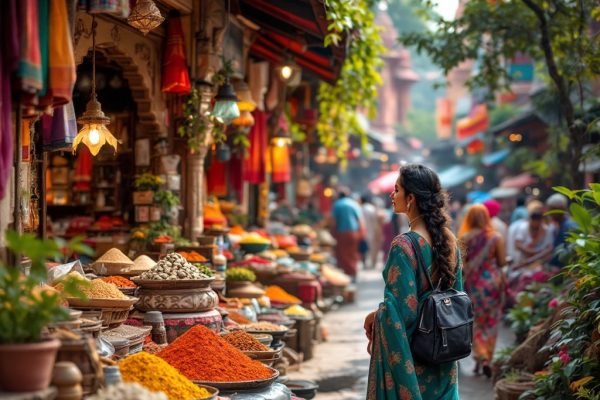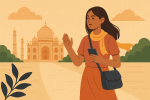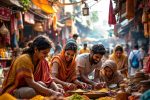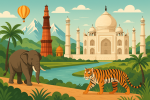How to Stay Healthy While Traveling in Malaysia
Planning a trip to Malaysia? Ensure a healthy and safe adventure by preparing in advance! Learn about recommended vaccinations like Hepatitis A and Typhoid, and pack essentials such as insect repellent with at least 20% DEET and high SPF sunscreen (50 or higher). Discover tips for food and water safety, navigating the Malaysian healthcare system, and handling emergencies. Prepare for a worry-free trip – read on to learn more!
Important information

- Consult your doctor 4-6 weeks before your trip to discuss vaccinations and required medications.
- Pack insect repellent (at least 20% DEET), high SPF sunscreen (50+), and a first-aid kit.
- Drink bottled or boiled water, and avoid ice from unreliable sources to prevent illness.
- Obtain comprehensive travel insurance that covers medical expenses and emergencies.
- Be aware of mosquito-borne illnesses like Dengue Fever and take necessary precautions.
Pre-Travel Health Preparations
Prepare for your journey with these pre-travel health essentials. Consult your doctor at least a month before departure to discuss your health needs and necessary prescriptions. Ensure your routine vaccinations are up-to-date and review recommended vaccinations for your destination, such as Hepatitis A, typhoid, and rabies.
Pack a comprehensive health kit:
- Anti-diarrheal medication,
- Rehydration salts,
- Antihistamines,
- Motion sickness tablets,
- Painkillers,
- Antibiotic ointment,
- Insect repellent with at least 20% DEET,
- Sunscreen with an SPF of 50 or higher.
For remote areas with limited healthcare:
- A pre-travel check-up is particularly important,
- Secure travel insurance that covers medical expenses,
- Pack a well-stocked first-aid kit with bandages, antiseptic wipes, and personal medications,
- Include insect repellent, sunscreen, allergy medications (if needed), and water purification tablets,
- Remember comfortable walking shoes and breathable clothing.
Routine Vaccinations and Health Checklist
Plan your vaccinations well in advance of your Malaysian adventure. Essential routine immunizations like MMR, DTaP, chickenpox, polio, and the annual flu shot should be up-to-date. Consult your doctor four to six weeks before your trip for personalized advice.
Ensure your routine vaccinations are current. This includes MMR, DTaP, chickenpox, and polio.
Get your annual flu shot.
Consult your doctor 4-6 weeks before your trip. They can provide personalized recommendations based on your health status and itinerary.
Discuss travel-specific vaccines. These may include Hepatitis A and B, typhoid, and Japanese Encephalitis.
Get the COVID-19 vaccine if eligible.
Prioritizing your health ensures a safe and worry-free trip.
Necessary Vaccines and Prescription Medicines
Before embarking on your Malaysian journey, ensure you have a sufficient supply of any prescribed medications, accompanied by a copy of the prescription. Travelers originating from a yellow fever zone must also carry their vaccination certificate. A consultation with your doctor or a travel clinic 4-6 weeks prior to your trip is strongly advised. They can provide guidance on recommended vaccinations, such as Hepatitis A, Typhoid, and MMR, tailored to your itinerary. Finally, review the latest travel guidelines and health advisories issued by Malaysia before your departure. Don’t forget to complete the Malaysia Digital Arrival Card, a requirement for entry into Malaysia.
Booking a Travel Health Clinic Visit
Planning your Malaysian escape? A visit to a travel health clinic 4-6 weeks before your trip is crucial. This ensures vaccinations have enough time to become fully effective. Clinics offer essential destination-specific health advice, including potential hazards and preventative measures. Protect your health and stay informed – book your appointment today.
Importance of Travel Insurance
Planning a trip to Malaysia? Don’t forget travel insurance. It’s essential for covering unforeseen medical expenses, from hospital stays to emergency evacuations. While urban private hospitals are generally well-equipped, rural clinics may have limited resources, making travel insurance even more critical. A comprehensive plan not only safeguards you from potentially high medical costs, especially for emergency services, but often covers adventure activities too, a plus for thrill-seekers. For smoother service at Malaysian hospitals and clinics, keep your health insurance card and claim forms readily available. Also, have your insurance provider’s contact information and local emergency numbers on hand.
Medical Evacuation Insurance
Medical evacuation insurance covers transportation to a suitable medical facility if you experience a serious illness or injury while traveling. It can even cover the cost of transport back home. This is particularly crucial in a country like Malaysia, where specialized care might be limited. Given the potentially exorbitant costs of medical evacuations, this insurance provides invaluable protection and peace of mind. It could save you a fortune in unforeseen transport expenses while ensuring access to the best possible medical attention.
Health Insurance Documents and Prescriptions
When visiting your doctor, remember to bring the following: your health insurance card, your policy documents, and a list of current prescriptions (including both brand and generic names). This ensures smooth refills and facilitates care during emergencies. Copies of your insurance card and claim forms can also expedite services at hospitals and clinics, saving you valuable time.
Packing Essentials for Health and Safety
Preparing a comprehensive travel health kit is essential for a smooth trip to Malaysia. Pack these essential items: anti-diarrheal medication, antihistamines, pain relievers, bandages, antiseptic wipes, and any personal prescriptions. Bring extra medication in case of travel delays. Given the prevalence of mosquitoes, pack insect repellent with at least 20% DEET. Photocopy your passport and visa to safeguard these important documents. Remember your health insurance card and a list of emergency contacts. Note down any allergies or medical conditions, as this information can be invaluable in an emergency. Remember to apply for a Malaysia Digital Arrival Card before your trip to Malaysia.
Travel Health Kit and First-Aid Items
Pack smart for your travels with these health essentials:
First-Aid & Medications:
- bandages,
- antiseptic wipes,
- personal medications,
- painkillers,
- antibiotic ointment,
- antacids.
Other Essentials:
- insect repellent (at least 20% DEET),
- high SPF sunscreen (50 or higher),
- antihistamines (for allergies and motion sickness),
- water purification tablets,
- anti-diarrheal medication,
- oral rehydration salts,
- hand sanitizer.
Additional Tips:
- Pack comfortable, breathable clothing and shoes.
- Bring spare glasses or contacts if needed.
- Use a pre-travel checklist to ensure you have everything.
These recommendations apply to any trip, including Malaysia.
Items for Mosquito Bite Prevention
- Safeguard yourself against mosquito bites by using EPA-registered insect repellents.
- For extra protection, treat your clothing and gear with permethrin.
- When sleeping, particularly in rural locations, bed nets provide a crucial barrier against mosquitoes.
- Consider lodging with air conditioning or window screens to minimize exposure.
Essential Documents and Medical Information
Before your trip, prepare copies of essential documents:
- passport,
- visa,
- driver’s license,
- flight and hotel confirmations,
- emergency contact list,
- health insurance card.
Also pack a summary of your medical history, including allergies, current medications, and vaccination records. For added safety, create a list of local doctors and hospitals.
Travel Health Requirements and Precautions
Planning a trip to Malaysia? Safeguard your health by taking a few simple precautions against mosquito-borne illnesses. Before you depart, check for any health advisories or updates. Pack essentials like insect repellent with at least 20% DEET and a well-stocked first-aid kit. This kit should include bandages, antiseptic wipes, and any personal medications in their original containers (with prescription copies). Staying hydrated is key, so stick to bottled or filtered water. Consider water purification tablets, particularly if venturing into rural areas. Protect yourself from the sun with a high SPF sunscreen (50 or higher). Finally, consult your doctor about your specific health needs and consider travel insurance for potential medical expenses.
Check for health advisories and updates before your departure.
Pack insect repellent with at least 20% DEET, a first-aid kit (bandages, antiseptic wipes, personal medications in original containers with prescription copies), and high SPF sunscreen (50 or higher).
Stay hydrated with bottled or filtered water, and consider water purification tablets for rural areas.
Consult your doctor about your specific health needs and consider travel insurance.
Risk of Mosquito-Borne Diseases
Traveling in Malaysia? Be aware of mosquito-borne illnesses. Dengue fever is a risk throughout the year, regardless of location. Malaria, while less common, is a concern primarily in rural Sabah and Sarawak. Japanese Encephalitis, though rare, is also a possibility. Consult your doctor about precautions, especially if traveling during the rainy season when mosquito activity increases. They may recommend antimalarials or other preventative measures depending on your itinerary and individual health. Here’s what you need to know about mosquito-borne illnesses in Malaysia:
Dengue Fever
Present year-round throughout Malaysia, dengue fever is transmitted by the Aedes mosquito, which is most active during daylight hours. Symptoms may include high fever, severe headache, muscle and joint pain, and skin rash. There is no specific treatment for dengue, so prevention is key.
Malaria
Malaria is less common than dengue in Malaysia but is a risk, particularly in the rural areas of Sabah and Sarawak. It is transmitted by the Anopheles mosquito, which is most active at dawn and dusk. Symptoms are similar to flu and can include fever, chills, headache, muscle aches, and fatigue. Antimalarial medication may be recommended depending on your travel plans; consult your doctor.
Japanese Encephalitis
While rare, Japanese Encephalitis is a serious disease transmitted by mosquitoes, primarily in rural agricultural areas. Most infections are mild, causing only fever and headache, but in rare cases, it can lead to severe brain swelling. A vaccine is available for Japanese Encephalitis, so discuss this with your doctor.
Protecting Yourself from Mosquito Bites
- Use insect repellent containing DEET or picaridin.
- Wear long sleeves and pants, especially during dawn and dusk.
- Sleep under mosquito nets, particularly in areas with high mosquito activity.
- Ensure your accommodations have screens on windows and doors.
- Eliminate standing water around your living areas.
Food and Water Safety
When traveling, prioritize your health by taking these precautions:
- Drink only bottled or boiled water, and avoid ice unless it’s from a reliable source.
- Choose hot, well-cooked meals for the safest dining experience.
- If you’re tempted by street food, select busy stalls popular with locals.
- Peel fruits and vegetables yourself or ensure they’re washed in safe water.
- Above all, wash your hands frequently, especially before meals.
Personal Hygiene Practices
Frequent handwashing with soap and water is crucial for staying healthy while traveling. Remember to cover your mouth and nose when coughing or sneezing to prevent the spread of germs. This easy precaution protects both you and those around you.
Eating Safely in Malaysia
Enjoy Malaysian street food safely by following these tips:
- Choose busy stalls where food is cooked fresh and served hot.
- Avoid undercooked dishes and unpasteurized dairy.
- Watch how vendors handle ingredients.
- Peel your own fruit.
Stay healthy during your culinary adventures:
- Drink bottled or boiled water, and be cautious about ice unless it’s from a trusted source.
- Wash your hands often with soap and water, especially before eating.
- Carry hand sanitizer.
- Use a reusable water bottle filled with safe water.
Street Food Safety Tips
When exploring street food, seek out bustling stalls with a steady stream of customers, ensuring fresh food.
Opt for dishes that are hot and cooked to order for safe eating.
Steer clear of raw or undercooked items, especially seafood and meat.
Choose freshly peeled fruits and vegetables.
Avoid pre-cut produce, as it may not be as fresh.
Quench your thirst with bottled or boiled water.
Skip the tap water and ice.
Hydration and Safe Drinking Water
Staying hydrated in Malaysia’s tropical climate is essential. Always opt for bottled water, as tap water is generally not safe for consumption. Carry a reusable water bottle to keep purified or bottled water with you throughout the day. If you experience diarrhea, use oral rehydration solutions. Hydrating foods like watermelon and cucumbers can also help maintain your fluid intake. Avoid ice unless you’re certain it’s made from purified water; hot beverages are a safer choice when in doubt.
Outdoor Safety Tips
Staying hydrated is crucial in Malaysia’s hot and humid climate. Drink plenty of water, especially during the hottest part of the day, and avoid strenuous outdoor activities. Wear light-colored, loose clothing for comfort and safety. Apply high-SPF sunscreen liberally and seek shade whenever possible. A hat and sunglasses offer additional protection from the sun. Before you head out on your adventures, remember to apply for the Malaysia Digital Arrival Card for a hassle-free entry into Malaysia.
Dealing with Extreme Heat and Humidity
Staying well-hydrated is key, especially during outdoor activities. Aim for 3-4 liters of water throughout the day. Before strenuous exercise, gradually acclimate to warmer temperatures. Loose-fitting clothing will keep you comfortable. During peak heat, seek shade and rest. Apply SPF 50+ sunscreen often, and wear a hat for extra sun protection. Should you feel dizzy or experience excessive sweating, immediately find a cool place to rest and rehydrate with water or an electrolyte drink like a sports beverage to replenish lost salts.
Hydration is crucial. Drink 3-4 liters of water throughout the day, especially during outdoor activities.
Acclimatize to heat gradually before strenuous exercise.
Wear loose-fitting clothing for comfort.
Seek shade and rest during peak heat.
Apply SPF 50+ sunscreen frequently and wear a hat.
If you feel dizzy or experience excessive sweating, find a cool place to rest and rehydrate with water or a sports drink.
Emergency Health Measures
Traveling to Malaysia? Be prepared for any health-related issues. For emergencies, dial 999. For less urgent medical needs, consider the numerous private clinics and hospitals that offer comprehensive services. Packing a first-aid kit with essential medications is highly recommended. Also, keep copies of your health insurance and prescriptions readily available.
Before You Go
- Compile a list of emergency contacts, including your embassy or consulate.
- Research reputable nearby hospitals and clinics.
During Your Trip
- In case of an animal bite, seek immediate medical attention.
Seeking Medical Care in Malaysia
Healthcare in Malaysia ranges from basic clinics to advanced hospitals. Major cities like Kuala Lumpur offer excellent facilities, but standards can vary across the country. For peace of mind, research hospitals and clinics near your destination in advance. Travel insurance covering medical expenses abroad is highly recommended. It’s also wise to list nearby medical resources, including hospitals, clinics, and pharmacies, especially if you are traveling to remote areas.
Research healthcare facilities. Check hospitals and clinics near your destination before traveling to Malaysia.
Secure travel insurance. Obtain comprehensive travel insurance that covers medical expenses abroad.
Compile a list of medical resources. Prepare a list of nearby hospitals, clinics, and pharmacies, especially in remote areas.
Emergency Contacts and Healthcare Facilities
In Malaysia, dial 999 for emergencies, connecting you with ambulances, police, and fire rescue. For private medical care, consider Prince Court Medical Centre or Gleneagles Kuala Lumpur. Government hospitals offer public healthcare services. Remember, the Malaysia Digital Arrival Card is mandatory for entry into Malaysia.
